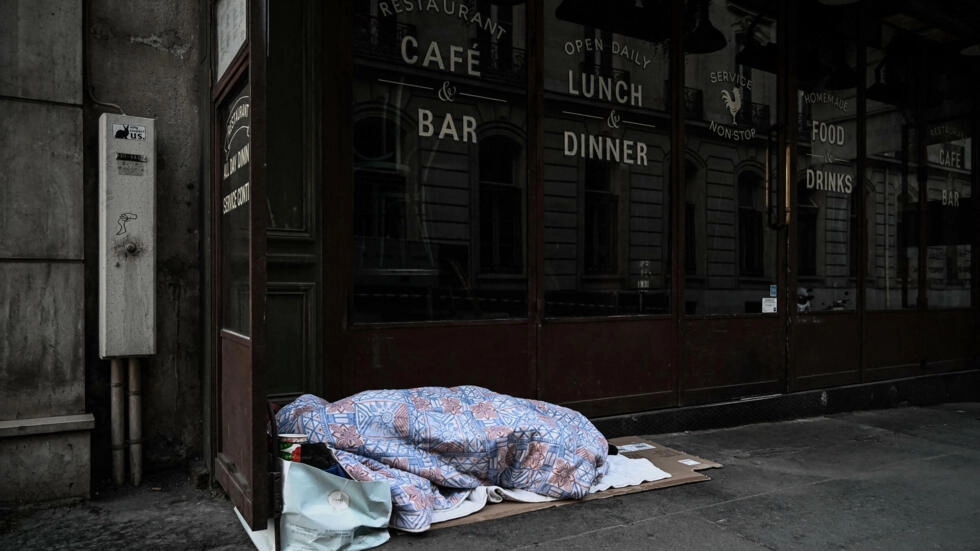At least 895,000 people are homeless in the European Union and the United Kingdom, according to an estimate published on Tuesday by the European Federation of Associations Working with Homeless People (Feantsa). A figure up compared to 2019, but not all countries are in the same boat.
More and more people are sleeping on the streets in Europe. This is the result of a study published today on poor housing in Europe and carried out in collaboration with the Abbé-Pierre foundation and the European Federation of National Organizations Working with the Homeless (Feantsa). According to the study, 895,000 people were homeless in 2022 across all 27 European countries.
“This estimate – based on fragmentary data and which only accounts for the most visible forms of housing exclusion – attests to the inability of European countries to make housing a fundamental right,” judges the report, co-written with the French Abbé-Pierre Foundation. To establish their figure, the authors studied the censuses of homeless people carried out in each country, where they exist. By adding up the counts of 13 countries whose data they considered sufficiently reliable and comparable with each other, they concluded that 0.174% of the European population lived on the streets or in emergency accommodation. Compared to the total population of the EU and the United Kingdom, this percentage gives some 895,000 homeless people in all 28 countries. This is almost 200,000 more than in 2019, the last year in which Feantsa carried out this calculation.
“Where we manage the problem through urgency, budgets have exploded over the last ten years”
In any case, it highlights an upward trend, but which hides significant disparities. “There are disparities since, for example, Finland has seen a 78% reduction in the number of homeless people since the beginning of the 1990s. Whereas, if you go to Ireland, over the last two years, there has been a 40% increase in homeless people, notes Sarah Coupechoux, head of European studies at Abbé-Pierre speaking to Lucie Bouteloup, from RFI’s France service. . And in recent years, we have had more and more women and families, and especially children, in accommodation centers. For example in France, we have 2,000 children living on the streets, in Ireland we also have 3,000 children in emergency accommodation centers. »
“It is a question of public health, it is also a question of public finances, because where we manage the problem through urgency, budgets have exploded over the last ten years even though we know that the ” housing first” [granting long-term housing to homeless people as soon as possible, Editor’s note] works very well and is economical, that is to say it does not cost more than emergency accommodation, and it is really more effective, underlines Sarah Coupechoux. So the urgency today is to have a political breakthrough very quickly. We know that the poorest vulnerable households are today the ones affected by inflation and energy prices. And it is perhaps they who we will also find in a few years among the homeless public. »
Example: Finland, which is among the good students, has invested heavily in the production of housing and applies the “Housing First” principle.
This article is originally published on rfi.fr







